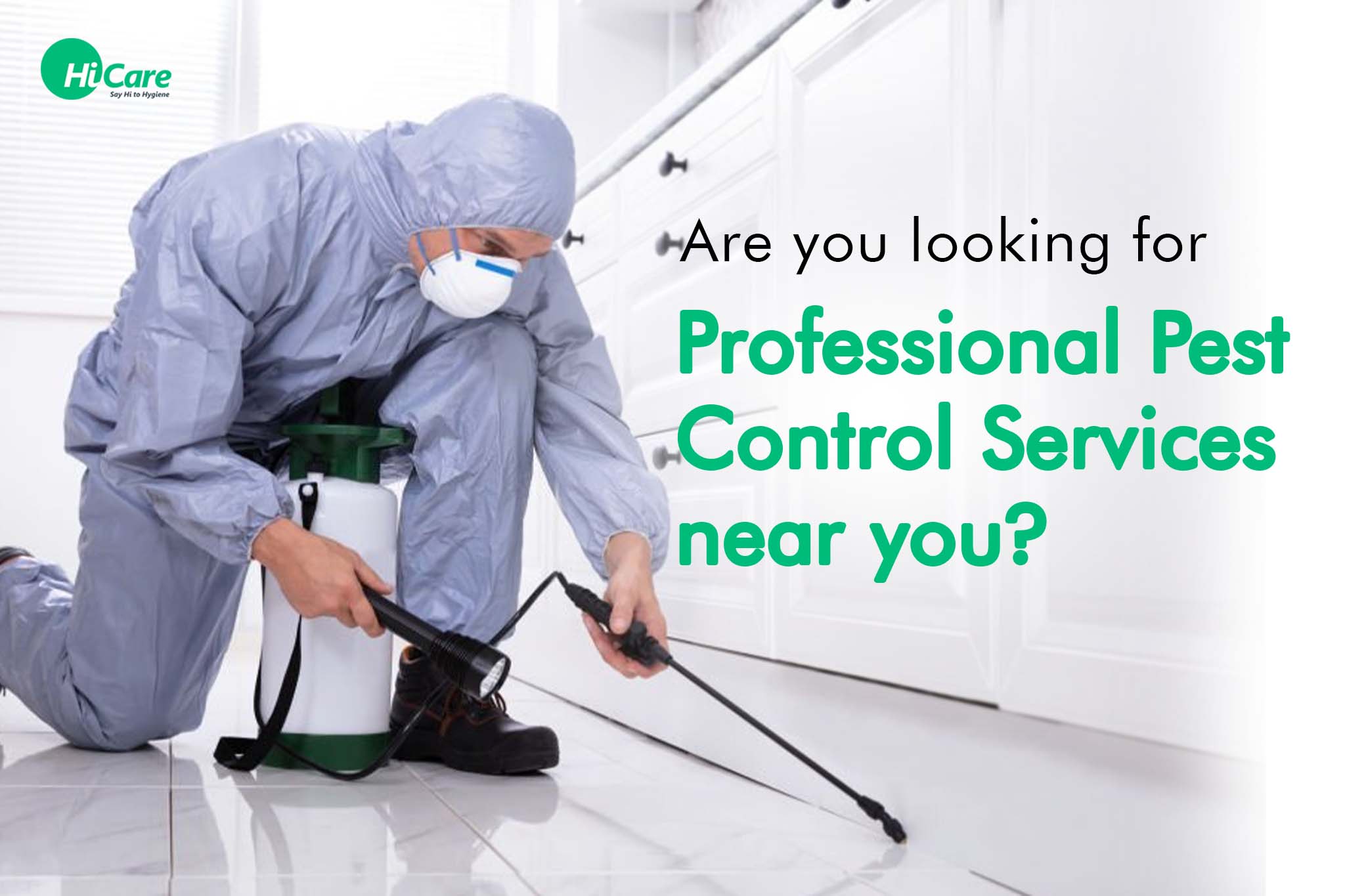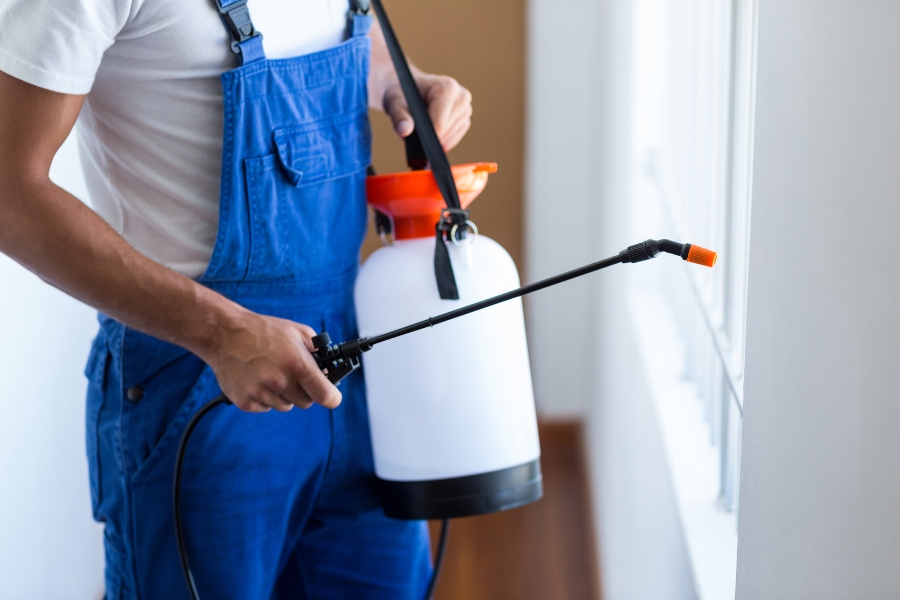Trusted Pest Control Clovis: Protecting Your Property
Trusted Pest Control Clovis: Protecting Your Property
Blog Article
Recognizing the Numerous Strategies to Pest Control: A Comprehensive Guide

Natural Insect Control Methods
Using green methods such as buddy planting and organic pest control is important for efficiently managing bugs in agricultural settings. Companion growing includes growing various plants in proximity to deter bugs, enhance nutrient uptake, and improve overall crop health and wellness.
Organic pest control includes introducing all-natural predators or microorganisms to manage pest populations. Ladybugs, as an example, eat aphids, regulating their numbers without the demand for chemical pesticides. One more example is making use of Bacillus thuringiensis (Bt), a bacterium that targets specific insect pests while being harmless to humans, animals, and valuable bugs.
These environment-friendly techniques not only minimize the reliance on synthetic pesticides but also help maintain biodiversity and soil wellness. By integrating all-natural insect control methods into farming methods, farmers can achieve sustainable parasite administration while minimizing adverse effects on the atmosphere.

Chemical Bug Control Solutions
In enhancement to natural pest control techniques, the use of chemical insect control remedies plays a considerable function in successfully taking care of pest populaces in farming environments. Chemical parasite control solutions are formulated to target specific insects that may trigger considerable damages to plants. These remedies frequently consist of artificial pesticides that are developed to remove bugs swiftly and successfully.
Among the crucial benefits of chemical bug control solutions is their effectiveness in controlling bug invasions on a huge range. Farmers can apply these solutions using numerous methods such as spraying, airing out, or seed therapy to secure their crops from damaging insects, weeds, and conditions. In addition, chemical bug control options are relatively easy to use and can supply fast results, aiding farmers guard their returns and lessen economic losses.
Nevertheless, it is important to make use of chemical bug control solutions deliberately to lessen potential unfavorable effect on the setting, non-target organisms, and human wellness. Proper application strategies, adherence to safety standards, and regular tracking are important to make certain the accountable use chemical insect control remedies in agricultural methods.
Organic Insect Control Approaches
Biological bug control comes close to utilize natural predators or pathogens to manage bug populaces in farming setups properly. One usual organic control approach is the introduction of natural enemies, such as ladybugs or parasitic wasps, to target specific pests.
Another organic control technique involves utilizing pathogens like microorganisms, viruses, or fungis to infect and kill pests. Generally, biological parasite control methods supply a sustainable and targeted remedy to pest administration in farming.
Integrated Insect Monitoring (IPM)
Integrated Insect Management (IPM) is a thorough method that incorporates various bug control techniques to effectively handle and decrease pest populations in agricultural systems. IPM concentrates on lasting avoidance of pests with a mix of organic, cultural, physical, and chemical control techniques. By incorporating these various methods, IPM intends to lower dependence on chemical pesticides, decrease environmental impact, and advertise lasting pest management methods.
One secret facet of IPM is using biological controls such as natural predators, bloodsuckers, and pathogens to regulate bug populations. This method utilizes the power of nature to keep a balance between insects and their all-natural enemies without creating damage to the atmosphere.
In addition, IPM entails cultural practices like crop habitat, cleanliness, and rotation manipulation to create unfavorable problems for parasites and official source disrupt their life process. Physical controls such as traps, barriers, and mulches are additionally Learn More made use of to stop parasite invasions.
Physical and mechanical Parasite Control Methods
Making use of non-chemical approaches, such as physical and mechanical bug control methods, is a critical facet of detailed insect management approaches, developing upon the foundation of Integrated Parasite Administration's holistic strategy. Mechanical bug control involves making use of physical barriers or catches to stop bugs from accessing and damaging plants or structures. This method can consist of techniques like mounting screens on home windows, utilizing row covers in farming, or utilizing sticky traps to capture insects.
Physical parasite control techniques, on the various other hand, concentrate on straight getting rid of pests with physical means. Using heat therapies to get rid of bed bugs or vacuuming up bugs like spiders or ants can be efficient methods to manage problems without the usage of chemicals. By incorporating these mechanical and physical insect control strategies into an Integrated Pest Monitoring plan, experts and people can decrease dependence on chemicals while still efficiently managing pest populations and minimizing damages.
Verdict

In enhancement to natural pest control approaches, the usage of chemical parasite control options plays a considerable duty in successfully handling pest populations in farming atmospheres.One of the key benefits of chemical insect control remedies is their efficiency in regulating insect problems on a big range.Integrated Bug Management (IPM) is a thorough method that incorporates various bug control techniques to properly manage and lessen pest populations in agricultural systems.Making use of non-chemical approaches, such as physical and mechanical bug control strategies, is a critical aspect of detailed parasite management methods, constructing upon the foundation of Integrated Bug Monitoring's holistic method. By integrating these mechanical and physical pest control methods into an Integrated Parasite Administration strategy, experts and people can lower dependence on chemicals while check this still effectively managing pest populations and lessening damage.
Report this page